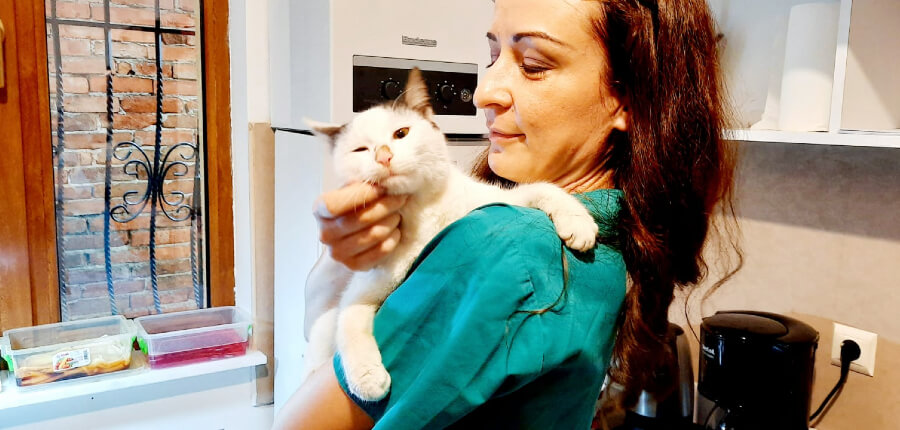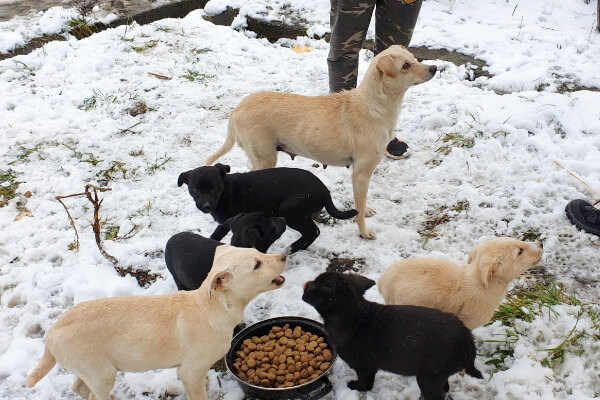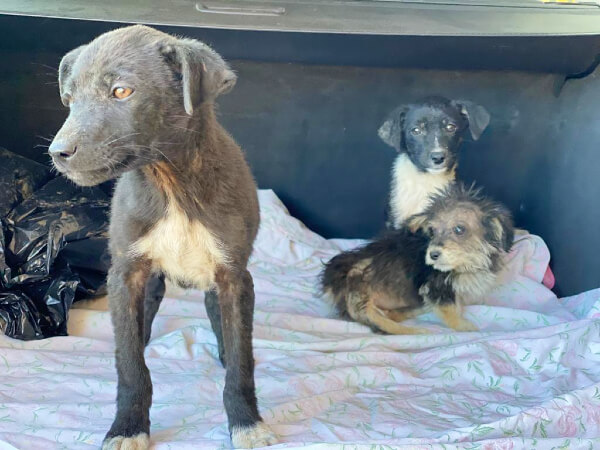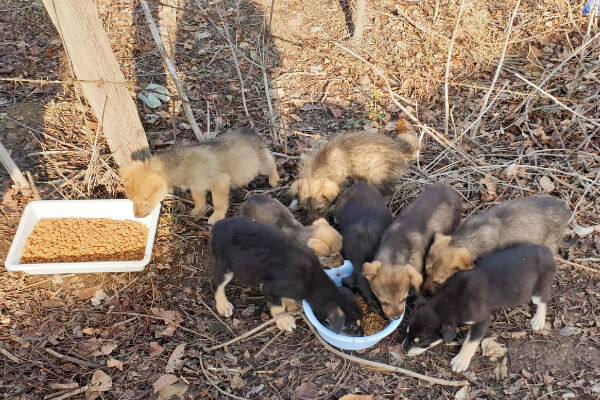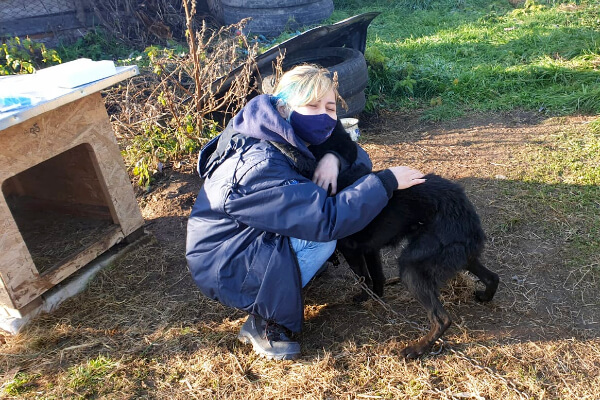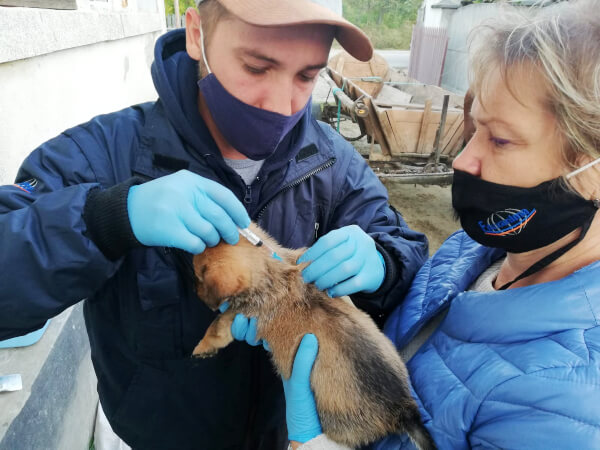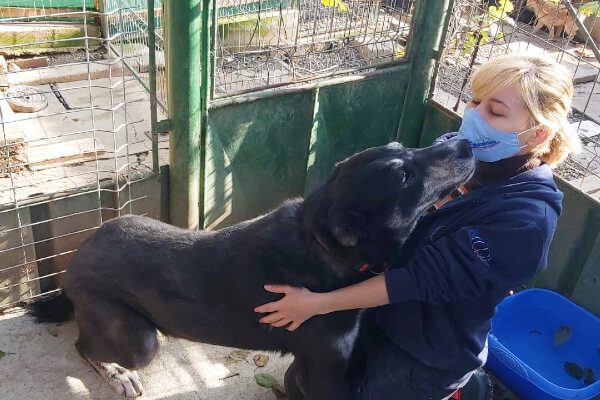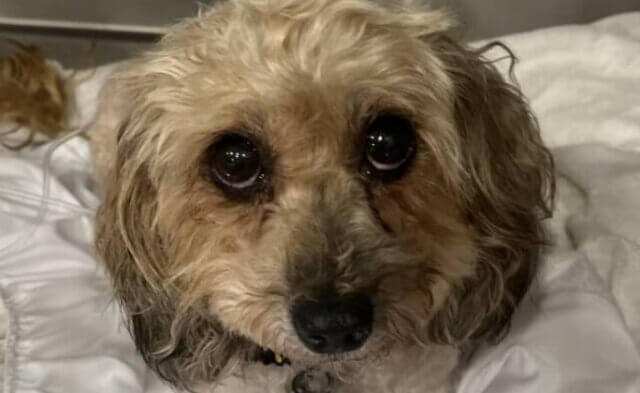The kind woman walking by assumed he must be dead. A young dog with a badly injured leg was lying motionless on the side of the road, covered with frost. What hope did he have in an icy Romanian winter? If he were still alive, it would be some kind of miracle.
It turns out that sometimes miracles do happen. This dog—named Samuel by PETA Germany fieldworkers—opened his eyes! He showed interest as he was approached, and when offered sustenance, he rose, balancing precariously on his three healthy legs, walked toward the kibble and fresh water, and happily began to eat and drink. PETA Germany transported him to a veterinarian, who treated his fractured leg and other medical issues, and he can now walk confidently once again.
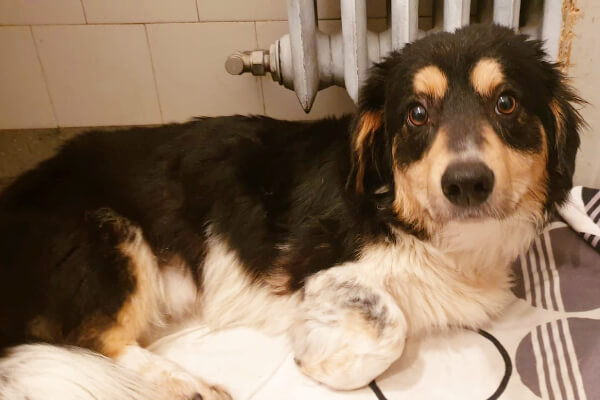
For every “miracle” like Samuel’s, another vulnerable animal faces homelessness and suffering in Romania. A PETA Germany representative reported in a summary of recent work, “Puppies, puppies, and even more puppies. The situation has never been so dire.” In 2020, many more animals were abandoned on the streets and condemned to a life of desperation—likely a result of the pandemic’s economic impact on Romania’s residents.
Even before COVID-19 invaded the country, approximately 600,000 animals were homeless in Romania. PETA Germany’s fieldworkers reach as many of these animals as possible to provide them with shelter and veterinary care and find them loving, permanent homes. But scores of animals still live on the streets and are in danger because of speeding cars, dogcatchers, hunger, exposure, and human cruelty.
Many other animals in Romania may not be homeless but also endure exceptionally difficult conditions. Animals in poverty-stricken rural areas rely on PETA Germany for deworming, vaccinations, and general medical care. Dogs are chained outside and forced to shiver in the snow, without even a doghouse or straw to help protect them from the elements. PETA Germany and its Romanian partner organization, Eduxanima, regularly visit “outdoor dogs” to replace their chains with lightweight tie-outs and provide them with shelter, straw, food, water, and veterinary care.
PETA Germany also improves the lives of Romanian animals by meeting with local lawmakers and creating youth education kits centered on animal welfare. This vital work is powered by PETA’s Global Compassion Fund, which allows us to campaign worldwide and assist local grassroots programs and organizations that care for animals. Whether a country needs disaster relief, spaying and neutering programs, or the dissemination of valuable information, the Global Compassion Fund is there to help.

